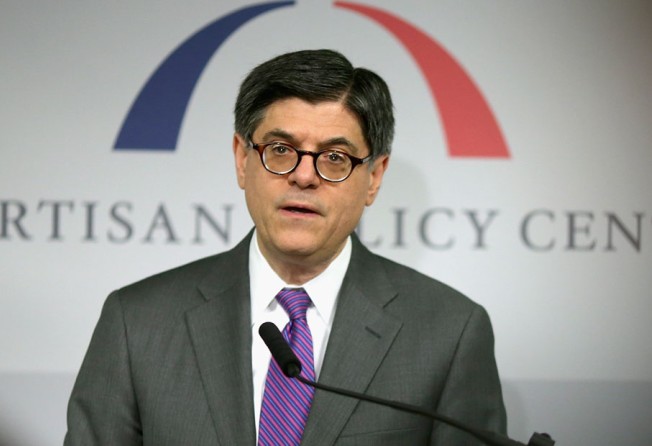
US Treasury Secretary Jacob Lew urges Congress to act quickly on debt

US Treasury Secretary Jacob Lew urged Congress to raise the debt ceiling as soon as possible, saying the US borrowing authority may not last past February 27.

House Republican leader Eric Cantor's schedule for votes for next week includes possible consideration of legislation related to the debt limit. No bill has been introduced.
House Republicans say they want concessions in exchange for raising the debt limit, though they have been unable to agree on exactly what. Options include averting cuts in doctors' Medicare payments and restoring cost-of-living adjustments for military retirees that were reduced in a December budget deal, said three House Republican aides anonymously.
A suspension of the US debt limit, enacted by Congress in October, expired on Friday. Lawmakers have not ruled out a debt-limit boost without conditions if Republicans cannot get enough support for a plan.
"It would be a mistake to wait until the last possible minute to act," Lew said in his letter to Boehner. After the extraordinary measures run out, any "cash balance would be exhausted quickly", he said.
Business groups are encouraging lawmakers to act to raise the debt limit. Democrats including President Barack Obama and Senate Majority Leader Harry Reid insist that it be raised without conditions.
"Any default by the federal government on its debts would cause devastating, long-lasting effects for all Americans," the Business Roundtable, which represents major US company chief executive officers, wrote in a letter to congressional leaders released on Friday.
Taking the government "to the precipice would foster uncertainty, dampen consumer and business confidence, risk higher borrowing costs, and could have immediate consequences for hiring and investment", wrote Randall Stephenson, chairman of AT&T and Louis Chene-vert, the chairman of United Technologies.
Stephenson is president of the Business Roundtable and Chenevert leads the group's tax and fiscal policy panel.
After the extraordinary measures run out, the Treasury would be left with about US$50 billion in cash, Lew said.
Lew said government expenditure can be as high as US$60 billion on certain days.